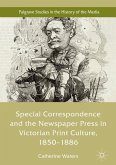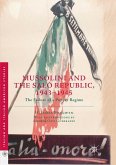This book provides a narrative history of the BBC Radio Variety Department exploring, along chronological lines, the workings of, tensions within and the impact of BBC policies on the programme-making department which generated the organisation's largest audiences. It provides an insight into key events, personalities, programmes, internal politics and trends in popular entertainment, censorship and anti-American policy as they individually or collectively affected the Department. Martin Dibbs examines how the Department's programmes became markers in the daily and weekly lives of millions of listeners, and helped shape the nation's listening habits when radio was the dominant source of domestic entertainment. The book explores events and topics which, while not directly forming part of the Variety Department's history, nevertheless intersected with or had an impact on it. Such topics include the BBC's attitude to jazz and rock and roll, the arrival of television with its impact on radio, the pirate radio stations, and the Popular Music and Gramophone Departments, both of whom worked closely with the Variety Department.
Bitte wählen Sie Ihr Anliegen aus.
Rechnungen
Retourenschein anfordern
Bestellstatus
Storno








